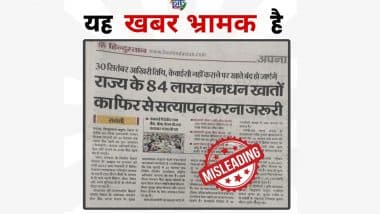Music is the soundtrack of our lives, whether we are aware of it or not. It exists within, uniting and guiding us that has helped heal body and spirit since the dawn of humanity. As the drumbeats echo, the rhythms circle the globe and in no time, we see individuals humming the tune. Music has scientifically validated health benefits but there is one song that has forced people to give up their lives. Yes, we are talking about the most famous notorious song ‘Gloomy Sunday’ which is nicknamed as the ‘Hungarian suicide song’. This song has been linked to over one hundred suicides, including the man who composed it. The song was composed by Rezső Seress and it has lyrics written by Seress’s close friend László Jávor.
The Hungarian song was initially seen as a war song which turned into a love song on loneliness. The song was written in 1932 where he was asking his dead lover to join him at his own planned funeral. The story goes that after László Jávor's girlfriend left him, he was so depressed that he wrote this melody that became ‘Gloomy Sunday’. Reports claim that it was Jávor's girlfriend left him, inspiring the song as a poem first. Others say that Seress wrote his own lyric about war and apocalypse, then Jávor later changed it to a heartbreak ballad. Whatever the reason is, ‘Szomorú vasárnap’ as it was titled, did not really make of a splash at first. But right after two years, a recorded version by the Hungarian pop singer Pál Kalmár was released which was connected to a rash of suicides in Hungary. The song was then allegedly banned.
Watch the video of Gloomy Sunday at your own risk!
The song created a stir in the 1930s when BBC described the song to be “too upsetting” and banned it. England also banned the song as stories of people committing suicide after listening to the song started making headlines. In the Time Magazine article, “Music: Suicide Song”, few suicides caused by the song were described. In Vienna, a teenage girl drowned herself while holding a piece of sheet that had the song lyrics written on it. In Budapest, a shopkeeper killed himself and left a note that quoted from the lyrics of the same song. Again, in London, a woman overdosed while listening to a record over and over again.
Gloomy Sunday Song Lyrics
Sunday is gloomy
My hours are slumberless
Dearest the shadows
I live with are numberless
Little white flowers
Will never awaken you
Not where the black coach
Of sorrow has taken you
Angels have no thoughts
Of ever returning you
Would they be angry
If I thought of joining you
Gloomy Sunday
Gloomy is Sunday
With shadows I spend it all
My heart and I
Have decided to end it all
Soon there'll be candles
And prayers that are said I know
Let them not weep
Let them know that I'm glad to go
Death is no dream
For in death I'm caressin' you
With the last breath of my soul
I'll be blessin' you
Gloomy Sunday
Dreaming, I was only dreaming
I wake and I find you asleep
In the deep of my heart here
Darling I hope
That my dream never haunted you
My heart is tellin' you
How much I wanted you
Gloomy Sunday
It is said that the song was released during the Great War and the Great Depression, when people were in a state of misery. The lyrics may have triggered the emotions of people in the tough time and driven them to suicide. Gloomy Sunday has claimed more than 18 lives in Hungary alone and reports also suggest that one of the song drove Seress’s girlfriend to commit suicide as well.
So, while Gloomy Sunday may have very well been connected to some of the suicides decades ago, we really cannot conclude if the song got into their brain and inspiring to kill themselves. But just to be on the safer side, if you ever find yourself in the saddest of atmosphere or even if you are feeling little blue, turn on something a little peppier.
(The above story first appeared on LatestLY on Apr 12, 2018 11:26 AM IST. For more news and updates on politics, world, sports, entertainment and lifestyle, log on to our website latestly.com).













 Quickly
Quickly















